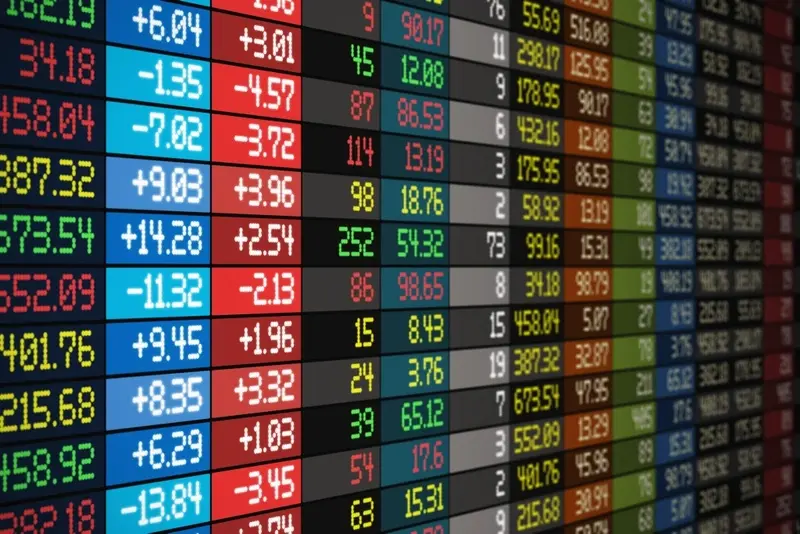
Shares in London, Paris and Frankfurt were slightly higher in a week dominated by the military stand-off on the border of Ukraine, with market participants wary of taking big positions ahead of a holiday weekend in the US.
The FTSE 100 index was up 16.11 points, or 0.2%, at 7,553.48 midday Friday. The mid-cap FTSE 250 index was up just 4.66 points at 21,562.14. The AIM All-Share index was down 5.41 points, or 0.5%, at 1,066.82.
The Cboe UK 100 index was up 0.3% at 750.03. The Cboe 250 was flat at 19251.10, and the Cboe Small Companies down 0.1% at 15566.06.
In mainland Europe, the CAC 40 in Paris was up 0.4%, while the DAX 40 in Frankfurt was flat on Friday.
Risk-off mood had gripped markets once again on Thursday amid doubts over Russia's claim to be withdrawing troops from the Ukrainian border.
US Secretary of State Antony Blinken told the United Nations to expect an offensive in the ‘coming days’, likely preceded by a pretext to justify military action. Some feared such a moment had arrived on Thursday, when a spike in shellings on the front line damaged an eastern Ukrainian kindergarten and Russian-backed separatists blamed Kyiv for escalating hostilities.
But hope returned after the US said Blinken would meet his Russian counterpart Sergei Lavrov next week - provided no invasion had occurred before then.
Russia on Friday said it was withdrawing more tanks and other armoured vehicles from areas near Ukraine's border. Separately, it said 10 Su-24 war planes were redeploying from the Moscow-annexed Crimean peninsula to airfields in other regions as part of drills.
‘News that Russia's Lavrov and America's Blinken will talk next week is seen as pushing potential invasion of Ukraine further out. That sigh of relief is seeing a mild risk-on response in the capital markets,’ commented Bannockburn Global Forex.
‘Still, with a long-holiday weekend in the US, the North American session may be more consolidative.’
Wall Street futures were pointed green, with the Dow Jones called up 0.4%, the S&P 500 up 0.5% and the Nasdaq Composite up 0.7%. US markets will be closed on Monday for the Presidents Day holiday.
In another sign that risk sentiment was improved on Friday, safe haven asset gold declined. The yellow metal was quoted at $1,887.86 an ounce on Friday, lower than $1,895.50 on Thursday.
Fellow safe haven the Japanese yen also retreated. Against the yen, the dollar rose to JPY115.24 from JPY115.02.
Sterling was quoted at $1.3616 midday Friday, marginally soft against $1.3620 at the London equities close on Thursday despite some better-than-expected retail sales figures.
UK retail sales rose 1.9% year-on-year in January after a 4.0% fall in December. This beat expectations of just 1.0% growth, according to FXStreet.
‘After a sluggish December where the Omicron wave had a significant impact, retail sales rebounded in January with their biggest monthly rise since the shops reopened last spring,’ said Darren Morgan, director of Economic Statistics at the ONS.
However, analysts cautioned that challenges lie in store for the sector as the UK's cost of living squeeze is set to intensify in April.
‘Better-than-expected retail sales suggest that, for now, the increased cost of living is not preventing Britons from hitting the shops,’ said AJ Bell financial analyst Danni Hewson, though he added: ‘Expect that to be tested through the course of the year.’
The euro traded at $1.1354 on Friday, dipping from $1.1370 late Thursday.
Brent oil was trading at $90.45 a barrel, dropping from $92.65 late Thursday as fears over the Russia-Ukraine conflict eased. Tensions have boosted oil prices in recent days over worries that they could lead to energy supply disruption.
Shares in London-listed oil majors Shell and BP were down 0.7% and 0.8% respectively at midday.
Helping to push the FTSE 100 higher at midday was Reckitt Benckiser, rising 2.9% to extend Thursday's 5.9% rally. The hygiene and household goods firm on Thursday posted a full-year loss but beat expectations on the revenue front, with the firm looking towards a margin improvement in the year ahead despite inflationary pressures.
Standard Chartered rose 1.9%, also building on Thursday's gain of 1.7%. The bank on Thursday had reported pretax profit for 2021 of $3.35 billion, more than doubled from $1.61 billion a year prior.
Towards the other end of the large-cap index was fellow lender NatWest, falling 2.5% despite returning to profit in 2021.
The state-backed bank swung to a pretax profit of £4.03 billion, slightly above the £4.02 billion expected by analysts, from a loss of £481 million the year before, benefiting from an impairment release of £1.28 billion versus an expense of £3.13 billion. The 2021 profit figure neared 2019's result of £4.23 billion.
Natwest laid out plans for a £750 million share buyback in the first half of 2022 and said it will consider further repurchases as part of its capital distribution approach. This was alongside a final dividend of 7.5 pence, more than double 3.0p the year before.
However, AJ Bell's Hewson noted: ‘The better than expected earnings and hike in the outlook were, to some extent, baked in, and investors may be concerned about the possibility of an increase in bad debts as its customers face a cost of living crisis. This could outweigh any boost to profitability from higher rates.’
Cineworld was down 2.6% after agreeing a new payment deadline with former dissenting shareholders of Regal Entertainment Group.
In early 2018, Cineworld took over the US cinema business, and in May of last year, Cineworld received a court judgement regarding the price that Regal shareholders were paid. The judgement against Cineworld was around $255 million.
The two parties have now agreed to a new deadline of June 30 this year for the remaining $79.3 million of escrow funds, plus interest and fees. The amount will be paid in instalments of unspecified amounts up until this deadline.
On AIM, CVS shares tumbled 14% after the UK competition regulator decided that its takeover of Quality Pet Care will reduce competition in five locations.
Quality Pet Care was bought by CVS in August last year for £20.4 million. The Woking, England-based business, which trades as The Vet, owns eight veterinary practices across the UK. Norfolk-based CVS, on the other hand, owns 506 veterinary practices in the UK, Ireland and Netherlands.
The UK Competition & Markets Authority thinks the deal ‘may have resulted in a substantial lessening of competition’ in Bristol, Nottingham, Portsmouth, Southampton and Warrington after completing a phase one investigation into the takeover.
The CMA has given CVS five working days to address the competition concerns. Otherwise, it will refer the deal to a Phase 2 investigation.
Copyright 2022 Alliance News Limited. All Rights Reserved.




